How I Find My People at a Party
Want to talk about hard things? If your answer is yes, come sit next to me.
Our hospital is merging with another health system and most meetings involving the merger have been task-focused, leaving little time to get to know people from the “other side.” On a call a few weeks ago as we were waiting for others to join, I asked a co-worker what she was reading, and she mentioned a book about caregiver burnout. As we talked, we realized that we both enjoyed reading cancer memoirs and wondered if others might, too.
What better way to bring a group of cancer-focused people together than a lunch time discussion about a book about cancer? I enlisted the help of a counselor who was already leading a book club for patients and last Friday, dozens of employees from clinics across the state met virtually to discuss our first book. It was a huge success and we’ve already picked another book for September.
I love getting to know people this way. A conversation around books is especially attractive to me as I am not great at small talk. I excel at the deep, the heavy and the hard. An occupational hazard of being an oncologist, I guess, and usually what someone is reading brings up what someone is feeling which is a conversation where I feel the most comfortable.
As a result of my aversion to small talk, I often find myself holed up in a corner at parties explaining the intricacies of living wills or sympathizing over the burden of caring for a spouse with dementia. When people open the door and share their struggle, I form a connection with them and hope they feel the same. The opposite happens when I realize the introductions are over and the lovely person sitting across from me pauses, expecting me to continue a normal conversation. Ummm…can we just start at second base? How do you feel about your mother?

Authors and cancer survivors Kelly Corrigan and Kate Bowler described this feeling on Kate’s podcast Everything Happens:
Kelly: This kind of superficial, small talk is exhausting and makes my eyes cross.
Kate: I didn’t realize how intolerant I am of extended small talk until I was in a group setting the other day and everyone was being normal to each other and exchanging the kind of information that you typically exchange. And then there was just like a microsecond pause. And I said, How many people here have been punched in the face? I mean, like really punched in the face. Just a nice table full of women. And then I realized maybe I’m not as good at small talk as I thought I was.
Kelly: And I’m no good with small talk either. I’m so clumsy in the way I change the channel conversationally. They’ll be telling me about their Kalakaua marble counter. And I’ll be like, let me ask you something: When your mom’s coming to town, are you anxious or happily anticipating the event?
Kate: Yes. Like diaries are out. Let’s get in there.
I like that: Diaries out. Let’s get in there.
What about you? Can you strike up a conversation with anyone and keep it superficial? Or do you bring your diary out and hope others will do the same?
For those seeking deep conversation, come sit next to me and let’s chat. These books come from the same place. No platitudes about the power of positive thinking, only the gritty truth of living in broken bodies.
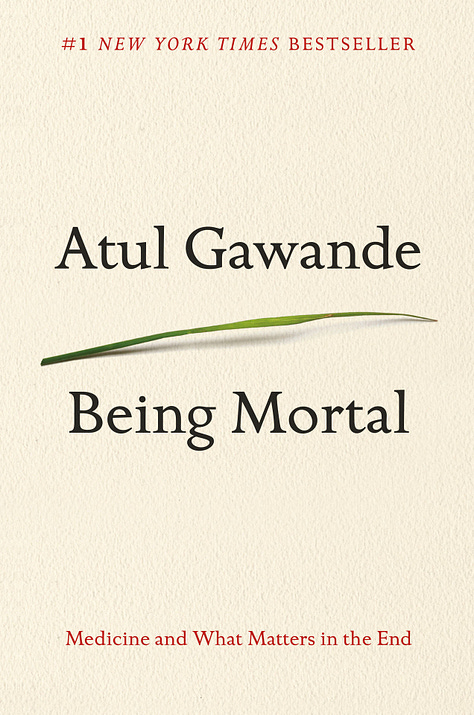
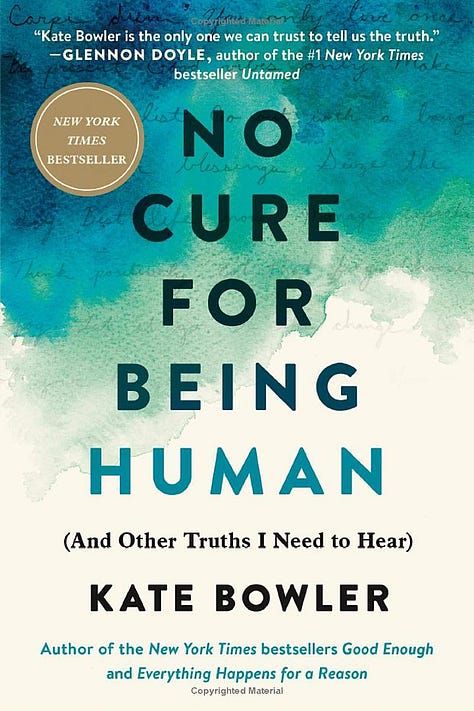
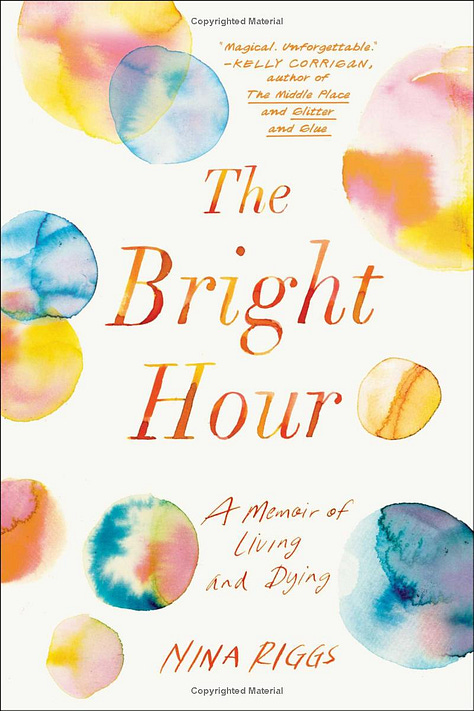

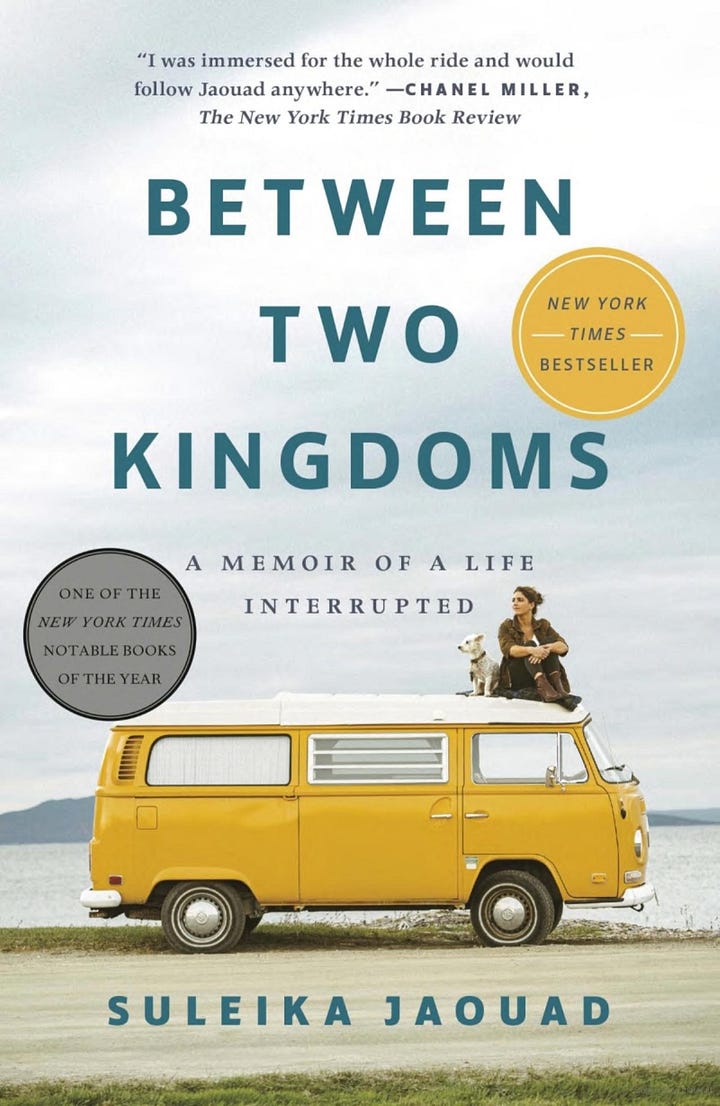
No Cure for Being Human: And Other Truths I Need to Hear
Duke Divinity Professor Kate Bowler brings the cancer conversation from the exam room to the kitchen table. Dr. Bowler humanizes the experience of being a young mom with a terminal diagnosis in this follow up to her best-selling memoir and excellent podcast, Everything Happens. Comfortably irreverent and deeply moving, no question is too difficult, and no topic too hard for this space.
The Bright Hour: A Memoir of Living and Dying
Written by the author as she is dying of metastatic breast cancer while her young sons are barely entering school, this story of living while you are dying is a breathtaking testimony to what matters in the end. The great-great-great granddaughter of Ralph Waldo Emerson disarms us with her humor as death creeps into her everyday life and ultimately conquers her stunning effort to live in the moment.
Being Mortal: Medicine and What Matters in the End
With wisdom and precision, Atul Gawande opened the conversation about what matters most in life and in death: our fears or our hopes. His exploration of patient autonomy is personal as well as professional as his father slowly loses his physical abilities to a rare spinal cord tumor and his patients challenge him with impossible questions in clinic.
When Breath Becomes Air
Dr. Paul Kalanithi’s breathtaking memoir of his diagnosis, treatment and ultimate death from lung cancer explores what happens when a doctor becomes the patient. He brings us into intimate moments like his love for his newborn daughter and his realization that the drug he hoped would buy more time isn’t working at all. I finished this book sobbing on a beach chair and cannot recommend it enough.
Between Two Kingdoms
I mentioned Suleika Jaouad’s gripping memoir in a previous post, and it was the first book discussed at our cancer-focused book club. Drawn from her New York Times column, The Isolation Journals, she does not shy away from “how illness heightens the good and the bad, unveiling new parts of yourself you wish you hadn’t known were there; how illness can bring you down to your most savage self.”
Honorable Mentions:
How to Say Goodbye, Grief Connects Us, The Middle Place, Already Toast
What books wrestling with hard things do you recommend? Please share in the chat below!
On my mind:
I’ll be speaking at the Lung Cancer Initiative’s Advocacy Summit on September 15th. If you’re in North Carolina and would like to attend, you can sign up here. They also have great resources for lung cancer patients and care partners.
What happens to someone’s digital life when they die? This piece in The Atlantic outlines how a loved one’s digital existence continues on long after the funeral.
A previous post covered why I think cancer patients and their caregivers would make great Martians. In this Radiolab episode, a blind journalist joins other disabled people on a zero-gravity flight. It widened my lens on who could be an astronaut.
Thank you for being a friend:

Poetry 180 is a curated list of poems, one for each school day. My favorite is Mary Oliver’s The Summer Day which ends like this:
I do know how to pay attention, how to fall down into the grass, how to kneel down in the grass, how to be idle and blessed, how to stroll through the fields, which is what I have been doing all day. Tell me, what else should I have done? Doesn't everything die at last, and too soon? Tell me, what is it you plan to do with your one wild and precious life?





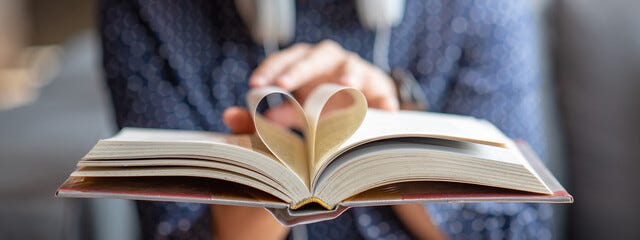
I love When Breath Becomes Air, but I’m adding the rest to my list now. I don’t know if I’ve ever noticed my intolerance to small talk until now because I am an extrovert or at least was pre-cancer and Covid. I also enjoyed The Last Lecture.
It’s funny this should pop up in my feed. I’ve been deliberating a decision (should have been straightforward) but I know this ... experiences feed the mind and that always helps make tough decisions. Great post